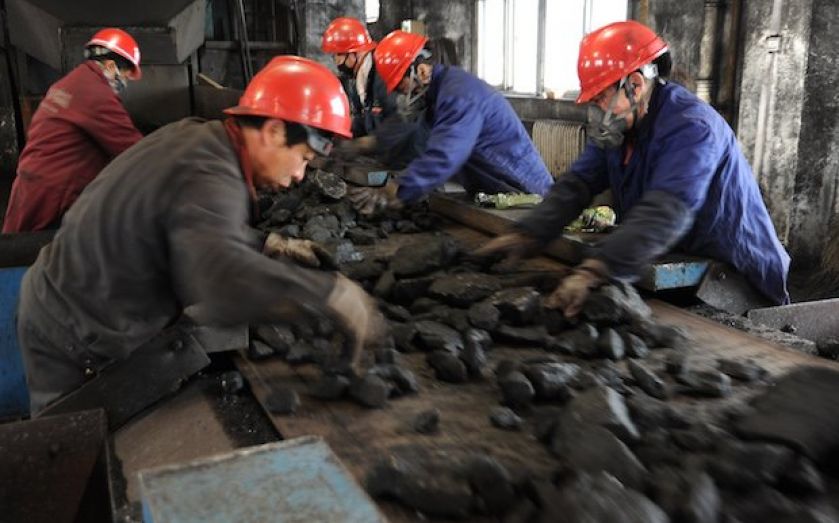Miners take a tumble as China’s credit growth slows even more

Weak trading data from China – exports unexpectedly fell 18.1 per cent in February from a year earlier, and imports rose 10.1 per cent – has hit miners this morning.
BHP Billiton’s down almost two per cent, with Anglo American and Glencore Xstrata both down over one per cent, and Rio Tinto down almost one per cent
Moreover, credit data from the People’s Bank shows that new bank lending more than halved last month – considerably weaker than most had expected. It fell back from 1,320bn renminbi to 644.5bn renminbi.
China’s benchmark interest rate for short-term interbank financing dropped to a 21-month low, on speculation that cash demand is lessening amid slowing growth.
Persistent currency interventions by the central bank saw interest rates plunge last month. The renminbi rallied slightly last week, but further intervention today has seen the currency fall and rates weaken again.
Growth of broad credit slowed even more, with outstanding total social financing rising by 17.1 per cent year-on-year in February, compared with 17.4 per cent in January.

Source: Capital Economics
Mark Williams of Capital Economics says looser monetary conditions will likely support a bouncing back of credit growth in the shadow banking sector. But Capital Economics "continues to expect the renminbi to rebound over the medium term and for domestic liquidity to tighten again."
The People’s Bank’s aim is to bring more volatility into the exchange rate and to deter speculative inflows, Williams explains. It doesn’t want to fight to markets indefinitely – particularly if it undermines efforts to control credit. Williams:
We don’t believe that the reiterated “about 7.5 per cent” GDP growth target signals that the government is sidelining efforts to slow credit growth.
Accordingly, our expectation remains that credit will continue to slow over the coming months and so too will the wider economy.